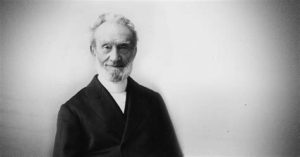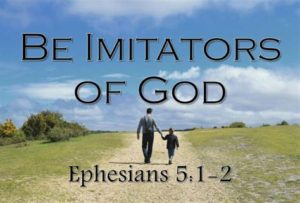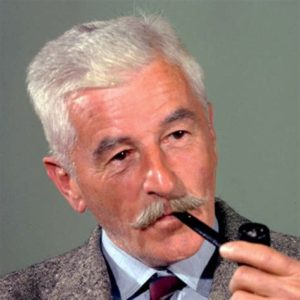 Praying is hard. It probably shouldn’t be, but it is. Our minds wander, we grow restless, we battle fatigue, but why? We have the opportunity to go to the great Creator of the universe to lay out our deepest desires, hurts, questions, and praises, yet we sometimes find ourselves in a battle to do what should be wonderful. Why?
Praying is hard. It probably shouldn’t be, but it is. Our minds wander, we grow restless, we battle fatigue, but why? We have the opportunity to go to the great Creator of the universe to lay out our deepest desires, hurts, questions, and praises, yet we sometimes find ourselves in a battle to do what should be wonderful. Why?
For one thing, Satan hates prayer. If he can bring any distractions to bear on us during our time of prayer he will. He really doesn’t care about most of our other activities. Reading a book, fishing, working, watching TV and a myriad of other daily dealings don’t concern him. As long as we are not praying, he is satisfied. That may partly explain why we have an easier time concentrating on facebook than God’s face.
he is satisfied. That may partly explain why we have an easier time concentrating on facebook than God’s face.
Our own flesh makes the prayer life more challenging. In our flesh we are not inclined toward God. Righteousness is not natural for us. ‘’There is none righteous, no not one.” Just like a person must tend a garden, or weeds will grow prolifically on their own, we must tend our spiritual lives. Sin grows without much watering. In our flesh prayer is not our first resort (unless a grenade just rolled into our foxhole), but we more naturally work our way through a multitude of worldly solutions until we are eventually brought back to God.
 So how can we pray effectively? There must be a way or God would not have called us to do it. George Mueller was one of the greatest pray-ers of all time. He cared for thousands of orphans during his lifetime and never once sent out a request of monies other than to God Himself. His diary entries of answered prayer are phenomenal. From the ordinary to extraordinary, God’s grace was illustrated in Mueller’s life on a daily basis. His way of praying (which he discovered during his ministry) reflects the kinds of prayer that is called for in the Word. It is truly Holy Spirit led.
So how can we pray effectively? There must be a way or God would not have called us to do it. George Mueller was one of the greatest pray-ers of all time. He cared for thousands of orphans during his lifetime and never once sent out a request of monies other than to God Himself. His diary entries of answered prayer are phenomenal. From the ordinary to extraordinary, God’s grace was illustrated in Mueller’s life on a daily basis. His way of praying (which he discovered during his ministry) reflects the kinds of prayer that is called for in the Word. It is truly Holy Spirit led.
I recently have read books and watched some videos on the idea of praying the Bible. I have to say, it works. If our minds our going to wander naturally, we need to train our minds to wander with a purpose. Praying the Bible allows the Holy Spirit to bring to mind those prayer requests that need our attention. One concern that I think all pray-ers  have is the dilemma of list praying. We have a prayer list and we pray the list faithfully, but it seems too routine, too sterile. Unfortunately, if we pray without a list, we miss important prayers and realize after a week that we haven’t brought Auntie Em’s heart condition before the Lord one time.
have is the dilemma of list praying. We have a prayer list and we pray the list faithfully, but it seems too routine, too sterile. Unfortunately, if we pray without a list, we miss important prayers and realize after a week that we haven’t brought Auntie Em’s heart condition before the Lord one time.
So how do we remember things but yet not become mechanical in our prayer time. Well, I think there is a way to use lists effectively but also to leave the lists aside for certain types of prayer. I think one of our problems is that we box our prayer time in and if it is not a certain way at a certain time then we tend set things aside. In other words, if we can’t do it “right” we won’t do it at all. There has to be a better way.
Let’s divide our prayer time into two types- Bible prayer and Idle prayer. Let me explain the difference and then detail them a little more over the next few days. Bible prayer is when we can have a Bible in front of us, without distraction, such as our daily quiet time in the morning or evening. Idle prayer is prayer that we do when we cannot read our Bible because we are walking, driving, working out, fishing or in any other place where detailed reading would not be logical or advisable. Idle prayer does not mean we are idle in the pure sense, but idle or away from the Bible. In short, Bible  prayer is when we can read our Bible along with prayer, and idle prayer is when we find ourselves without access to our Bible. Really, when we think about it, these two times cover all times. Is there any place or any time we cannot think? Not really. So there is there any place or any time that we cannot pray? Not really.
prayer is when we can read our Bible along with prayer, and idle prayer is when we find ourselves without access to our Bible. Really, when we think about it, these two times cover all times. Is there any place or any time we cannot think? Not really. So there is there any place or any time that we cannot pray? Not really.
Prayer is something that we can do any time. They say there is no prayer in school, but who can really prevent that? A school might be able to prevent folding hands, closing eyes, and even dropping a head before a meal, but that is not prayer, those are just common indicators that a prayer is happening. Indicators are not prayer. Prayer is an inside thing. There is a story about a child who was told to stand in the corner and he said he wanted to sit. After a brief argument with his mother, he went to stand in the corner. Standing with his face to the corner he said to his mom, “I might be standing on the outside, but I am sitting on the inside.” How true. No one can make us pray (except maybe a bad taxi driver) or keep us from praying. Our thoughts and prayers are our own and no one can prevent them.
In the next couple of weeks, I am going to tell you more about these two types of prayer and tell you how I think we can improve our prayer life dramatically.






